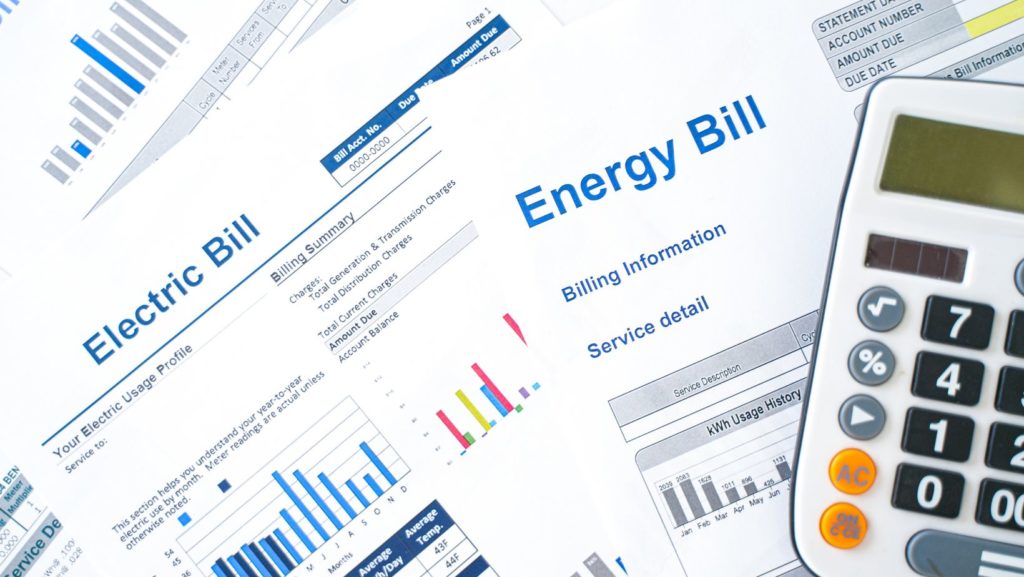The dawn of renewable energy, particularly solar power, has brought a significant shift in how we generate and consume electricity. Solar energy, harnessed through panels installed on rooftops or ground mounts, is becoming increasingly popular among homeowners, thanks to its sustainability and long-term cost savings. In this blog post, we’ll dive into the intricate ways solar energy from systems installed by companies like Advosy Energy can influence your monthly utility bills, leading to potential savings and a reduced environmental footprint.
While many are aware of the environmental benefits of solar energy, its financial implications, especially on monthly utility bills, are less understood. The shift to solar isn’t just a step towards green living; it’s also a savvy financial decision for many homeowners. By unraveling the costs, savings, and practicalities of solar power installation, we aim to provide a comprehensive view of how solar energy can transform your monthly budget.
Understanding Solar Energy

At its core, solar energy involves converting sunlight into electricity using photovoltaic (PV) panels. These panels can be installed in various settings, including residential roofs or solar farms. There are different types of solar systems: grid-tied, which allows homeowners to remain connected to the utility grid; off-grid, which is entirely independent of the grid; and hybrid, which combines elements of both. The effectiveness of these systems varies based on location, weather conditions, and how the panels are installed.
Key factors like geographical location and local climate play a significant role in the efficiency of solar panels. For instance, a home in a sunny state like Arizona will typically generate more solar energy than one in a less sunny area. The orientation and angle of your solar panels also influence their productivity. With technological advancements, solar panels are becoming more efficient, even in less ideal conditions.
Initial Costs and Investment
The upfront cost of installing a solar panel system can be a significant investment. These costs include the panels themselves, inverter, mounting hardware, and installation labor. However, this initial investment is often offset by various government incentives and rebates, which aim to encourage the adoption of renewable energy sources. It’s crucial for homeowners to explore these options to reduce their initial outlay.
A critical aspect of this investment is understanding the payback period – the time it takes for the energy savings to equal the initial investment. Depending on the size of the installation, energy usage, and local electricity rates, this period can vary. However, with rising energy costs, the payback period for solar installations is generally becoming shorter, making solar energy an increasingly attractive option for many homeowners.
Monthly Utility Bills: Before and After Solar Installation
Before installing solar panels, your utility bill is solely dependent on your consumption from the grid. Post-installation, these dynamics change significantly. Solar panels can generate enough energy to meet most, if not all, of your electricity needs, drastically reducing your dependence on the grid. In many cases, homeowners with solar panels see a substantial decrease in their monthly electricity bills.
Real-life case studies demonstrate the impact of solar installations on utility costs. For example, a family in a moderately-sized home might see their monthly bill drop by more than 50% after switching to solar. The actual savings depend on factors like energy consumption patterns and the size of the solar system, but the trend towards reduced bills is a common outcome.
Net Metering and Its Benefits
Net metering is a system that credits solar energy system owners for the electricity they add to the grid. For example, if a residential solar system produces more electricity than the home uses during daylight hours, the excess energy is fed back into the grid, and the homeowner receives credit for this contribution. This system can lead to significant savings on utility bills, as homeowners are essentially compensated for their excess energy production.
The financial benefits of net metering can be substantial. It not only reduces utility bills but can also lead to a net positive return, where the utility company owes the homeowner at the end of the billing cycle. However, net metering policies vary by state and utility company, so it’s important to understand the specifics in your area. Advosy Energy can help guide you through these regulations to maximize your benefits.
Maintenance Costs and Long-Term Savings
Solar panels are renowned for their low maintenance requirements. Once installed, they typically need only occasional cleaning and routine checks to ensure they operate efficiently. This low maintenance contributes to the long-term savings of solar panels, as ongoing costs are minimal compared to traditional energy sources.
Over the long term, the savings from solar energy can be substantial. By reducing or eliminating electricity bills, the average homeowner can save thousands over the lifespan of their solar panel system. Furthermore, solar energy can increase property values, making it a wise investment for the future. The upfront costs are mitigated by these long-term financial benefits, making solar energy an economically sound choice.
Environmental Impact and Energy Independence
Solar energy is one of the cleanest energy sources, significantly reducing carbon footprints. By adopting solar energy, homeowners contribute to a reduction in greenhouse gas emissions and reliance on fossil fuels. This shift not only benefits the environment but also enhances national energy independence, reducing the need for imported energy sources.
The long-term benefits of solar energy extend beyond individual savings to global environmental protection. By reducing dependence on non-renewable energy sources, solar power contributes to a more sustainable and stable energy future. It’s a proactive step toward combating climate change and preserving the planet for future generations.
Challenges and Considerations
Despite its many benefits, transitioning to solar energy can present challenges. These include the initial cost, space requirements for installation, and the dependence of solar panels on weather conditions. Additionally, not all homes are equally suited for solar panel installation due to factors like roof orientation and shading.
However, many of these challenges can be mitigated with proper planning and expert guidance. For example, Advosy Energy provides tailored solutions to optimize solar panel performance regardless of individual household limitations. By addressing these challenges head-on, homeowners can enjoy the benefits of solar energy without significant compromises.
Solar energy represents a transformative shift in how we approach our energy needs and expenditures. By significantly reducing monthly utility bills and offering long-term financial benefits, solar panels are an investment worth considering. Moreover, the environmental advantages align with a growing global emphasis on sustainable living.
For those considering making the switch to solar energy, Advosy Energy stands ready to guide you through every step of the process. From evaluating your home’s solar potential to navigating installation and maintenance, their expertise can help unlock the full benefits of solar energy for your home. Embracing solar power is not just a personal financial decision; it’s a step towards a more sustainable and responsible way of living.

